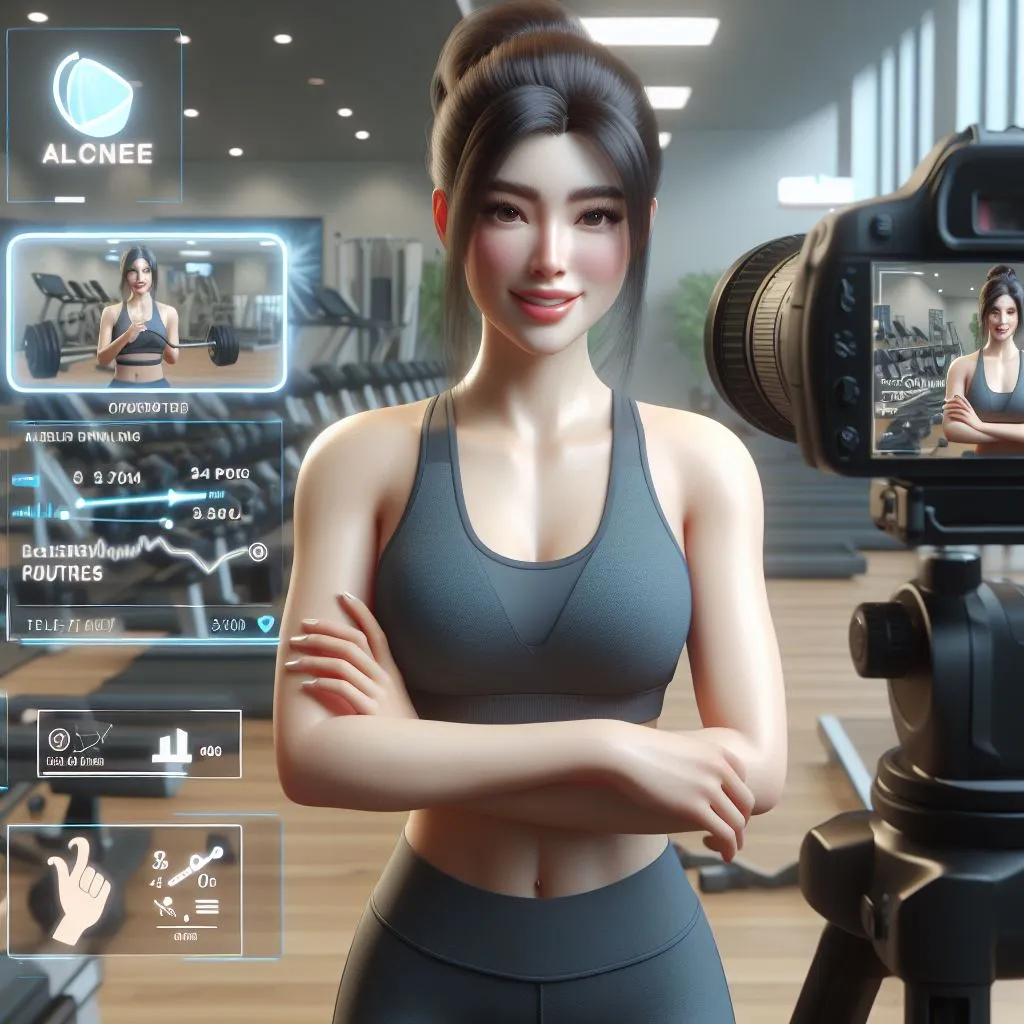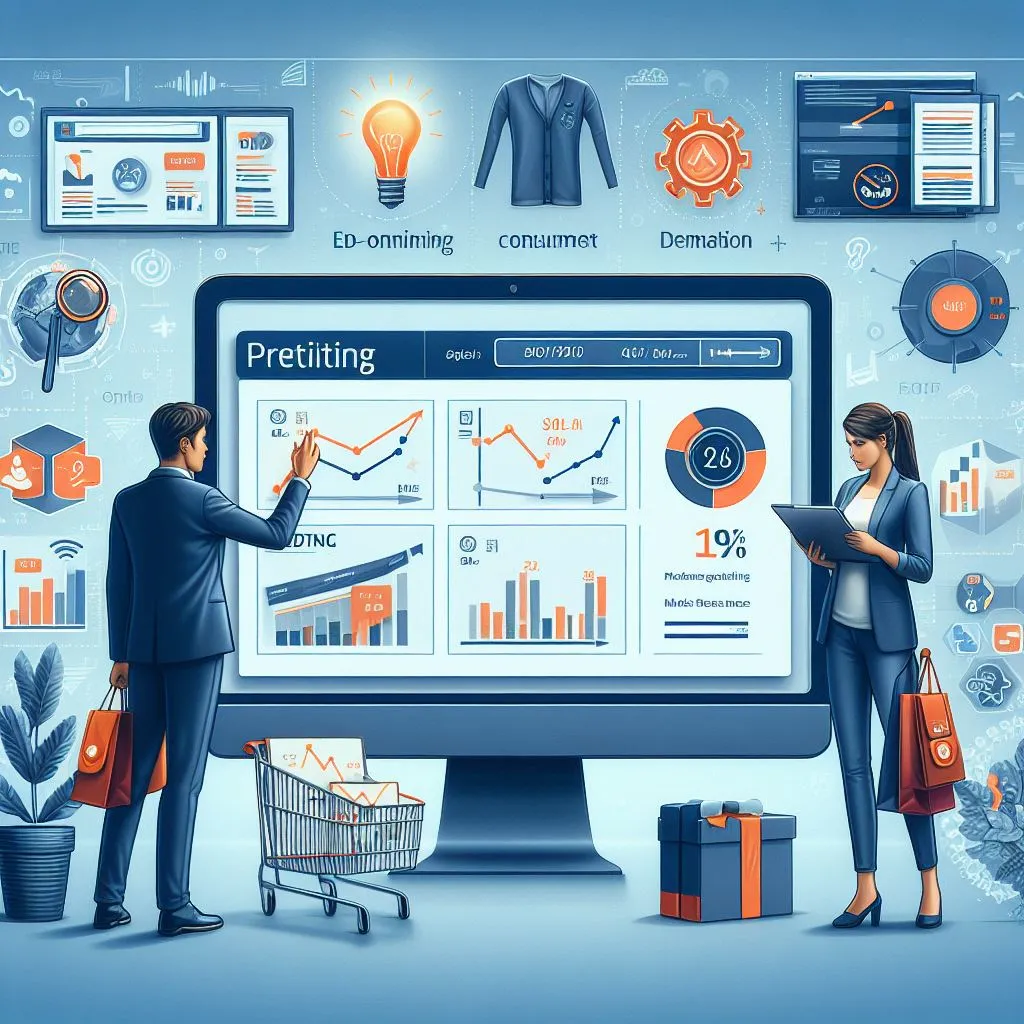
In today's digital ecosystem, the art of Search Engine Optimization (SEO) stands as a cornerstone for businesses striving to thrive online. As the landscape continually evolves, the integration of Artificial Intelligence (AI) into content creation has emerged as a game-changer, offering unprecedented avenues for optimizing SEO and elevating search engine rankings. This in-depth guide delves into the intricacies of AI-driven content creation, unveiling advanced strategies and providing practical insights to catapult your website to the forefront of online visibility.
Understanding the Dynamics of AI Content Creation
The advent of AI technology has revolutionized content creation, transforming what was once a time-consuming and resource-intensive task into a streamlined, efficient process. Through the utilization of sophisticated machine learning algorithms and natural language processing techniques, AI empowers marketers to generate diverse, high-quality content at scale.
For instance,
Consider a scenario where a travel agency seeks to enhance its online presence by producing engaging blog content. Using AI-powered content creation tools, the agency can effortlessly generate a series of destination guides, travel tips, and itinerary suggestions tailored to different audience segments. By automating the content creation process, the agency can maintain a consistent publishing schedule and attract a broader audience seeking travel-related information.
Key Benefits of AI Content Creation for SEO Optimization
1. Enhanced Keyword Optimization
AI algorithms analyze vast datasets of search trends and user behavior to identify relevant keywords and phrases. By leveraging these insights, marketers can strategically incorporate keywords into their content to improve organic visibility and attract qualified traffic.
Such as,
Suppose a fashion retailer wants to optimize its product descriptions for search engines. By utilizing AI-driven keyword research tools, the retailer can identify popular search queries related to specific clothing items, such as "women's floral dresses" or "men's tailored suits." By seamlessly integrating these keywords into product descriptions, the retailer can enhance its visibility in search results and drive more traffic to its online store.
2. Personalized Content Creation
AI empowers marketers to deliver personalized content experiences tailored to individual preferences and demographics. By leveraging data-driven insights, businesses can create customized content that resonates with their target audience, leading to increased engagement and conversion rates.
As an illustration,
Imagine an e-commerce platform that offers personalized product recommendations based on a user's browsing history and purchase behavior. By employing AI algorithms to analyze customer data, the platform can curate a selection of products tailored to each user's unique preferences and interests. This personalized approach not only enhances the shopping experience but also increases the likelihood of conversion, ultimately driving revenue growth for the business.
3. Content Quality and Relevance
AI-powered content creation ensures consistency and relevancy across all digital assets, helping businesses establish authority in their respective industries. By generating high-quality, informative content, brands can attract and retain a loyal audience while strengthening their position in competitive markets.
To illustrate,
Consider a technology company seeking to educate its audience about the latest developments in artificial intelligence. Through the use of AI-generated whitepapers, case studies, and thought leadership articles, the company can position itself as a trusted resource for industry insights and expertise. By consistently delivering valuable content, the company not only engages its audience but also reinforces its reputation as a leader in the field of AI technology.
4. Streamlined Content Production
AI streamlines the content creation process, enabling marketers to produce a diverse array of content efficiently. By automating repetitive tasks and optimizing workflow, businesses can save time and resources while maintaining a consistent publishing schedule.
As a case in point,
Suppose a marketing agency is tasked with managing multiple social media accounts for various clients. By utilizing AI-powered content scheduling tools, the agency can plan and schedule posts in advance, ensuring a steady stream of content across all platforms. Additionally, AI-driven analytics tools can provide valuable insights into content performance, allowing the agency to refine its strategy and maximize engagement.
Advanced Strategies for AI-Powered SEO Optimization
1. Semantic Keyword Research
 Instead of solely focusing on exact-match keywords, leverage AI tools to identify semantic keywords and long-tail phrases. By incorporating these variations into your content, you can capture a broader audience and improve your website's relevance in search results.
Instead of solely focusing on exact-match keywords, leverage AI tools to identify semantic keywords and long-tail phrases. By incorporating these variations into your content, you can capture a broader audience and improve your website's relevance in search results.
One example is,
Suppose a healthcare provider wants to optimize its website for local search queries related to medical services. By using AI-driven keyword research tools, the provider can identify relevant long-tail keywords such as "urgent care clinic near me" or "pediatrician in [city name]." By strategically integrating these keywords into website content, the provider can enhance its visibility in local search results and attract more patients from the surrounding area.
2. Content Diversification
 Diversify your content formats to cater to different audience preferences and increase your chances of ranking for various search queries. From blog posts and infographics to videos and podcasts, explore diverse content formats to engage your audience effectively.
Diversify your content formats to cater to different audience preferences and increase your chances of ranking for various search queries. From blog posts and infographics to videos and podcasts, explore diverse content formats to engage your audience effectively.
Take, for example,
Imagine a fitness brand looking to expand its online presence by producing informative content about exercise routines and nutrition tips. In addition to written blog posts, the brand could create video tutorials demonstrating workout techniques and healthy recipe videos showcasing nutritious meals. By diversifying its content formats, the brand can appeal to a wider audience and establish itself as a trusted authority in the fitness industry.
3. Natural Language Generation (NLG)
 Embrace NLG technology to generate human-like content that resonates with your audience. By simulating natural language patterns, AI-powered NLG tools create compelling narratives that captivate readers and encourage them to engage with your content.
Embrace NLG technology to generate human-like content that resonates with your audience. By simulating natural language patterns, AI-powered NLG tools create compelling narratives that captivate readers and encourage them to engage with your content.
Consider, a real estate agency that wants to create informative blog content about the home-buying process. By utilizing NLG technology, the agency can automatically generate engaging blog posts that guide readers through each stage of the home-buying journey, from property search tips to mortgage advice. By providing valuable insights in a conversational tone, the agency can establish credibility and attract potential homebuyers to its website.
4. Dynamic Content Optimization
 Implement AI-driven dynamic content optimization techniques to personalize user experiences in real time. By delivering relevant content based on user interactions and preferences, you can maximize engagement and drive conversions.
Implement AI-driven dynamic content optimization techniques to personalize user experiences in real time. By delivering relevant content based on user interactions and preferences, you can maximize engagement and drive conversions.
To demonstrate, Consider an e-commerce platform that uses AI-powered recommendation engines to suggest products to shoppers based on their browsing history and purchase behavior. As a user navigates the website, the platform dynamically updates product recommendations, showcasing items that align with the user's interests and preferences. By delivering personalized recommendations, the platform enhances the shopping experience and increases the likelihood of conversion.
5. Voice Search Optimization
 Optimize your content for voice search queries to capitalize on the growing prevalence of voice-enabled devices and virtual assistants. By identifying conversational keywords and phrases, you can tailor your content for voice-based interactions and secure featured snippets in voice search results.
Optimize your content for voice search queries to capitalize on the growing prevalence of voice-enabled devices and virtual assistants. By identifying conversational keywords and phrases, you can tailor your content for voice-based interactions and secure featured snippets in voice search results.
For Example: Suppose a local restaurant wants to attract more customers through voice search queries. By optimizing its website content with conversational keywords such as "best Italian restaurant near me" or "where can I find authentic pizza in [city name]," the restaurant increases its visibility in voice search results. Additionally, by providing concise, relevant answers to common voice queries, the restaurant can capture featured snippets and drive more traffic to its website.
6. Predictive Analytics and A/B Testing

Leverage AI-driven predictive analytics to anticipate future trends and optimize your SEO strategy accordingly. Conduct A/B testing experiments using AI tools to refine your content and maximize its effectiveness in driving organic traffic and conversions.
For instance, Imagine an e-commerce retailer launching a new marketing campaign to promote its latest product line. By utilizing predictive analytics, the retailer can forecast consumer demand and tailor its marketing efforts to align with anticipated trends. Additionally, by conducting A/B tests on different marketing messages and ad creatives, the retailer can identify which strategies resonate most with its target audience and optimize its campaign for maximum impact.
Harnessing the Full Potential of AI for SEO Success
Incorporating AI content creation into your SEO strategy empowers you to stay ahead of the curve in a fiercely competitive digital landscape. By leveraging advanced algorithms and cutting-edge technologies, you can unlock new opportunities for enhancing your online visibility, attracting qualified traffic, and ultimately achieving higher rankings on SERPs.
As you embark on your AI-powered SEO journey, remain vigilant about staying abreast of the latest developments in AI technology and continuously adapt your strategies to meet the evolving needs of your audience. By embracing innovation and harnessing the transformative power of AI, you can position your business for sustained success in the dynamic world of digital marketing.

